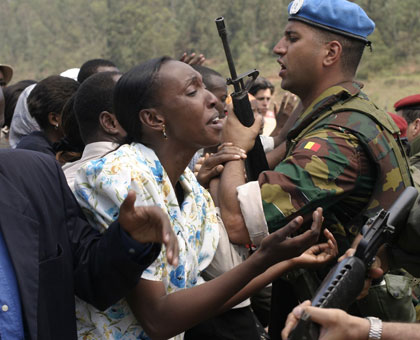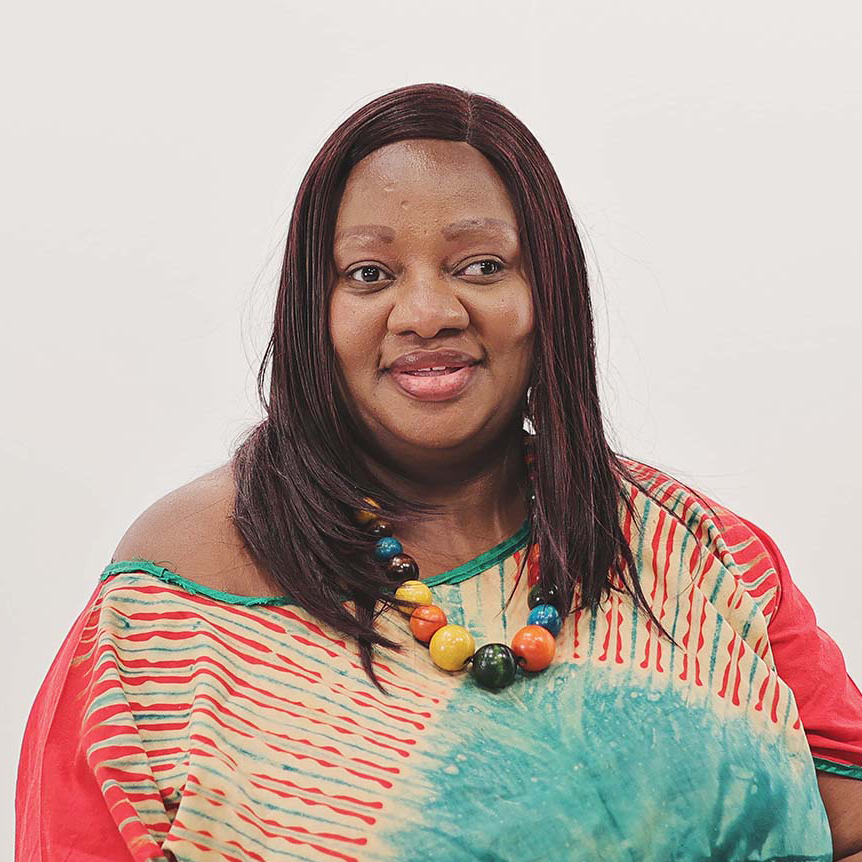It was around 11 a.m. on April 11, 1994, our second day in the United Nations military camp at ETO Kicukiro. The Belgium contingent of UN soldiers had decided to leave Rwanda after ten of their soldiers were brutally killed trying to protect the Prime Minister, Ms. Agatha Uwilingiyimana. My father, the Mayor, was commissioned to break the news to the 4,000 refugees gathered there.
"The Belgium UN soldiers have been ordered to leave the country." Before he could finish, we all started screaming, "We are going to be killed! We are going to be killed!"
Some refugees laid down in the driveway to the North Gate, hoping the UN trucks would be too afraid to run over them and stay. We begged the United Nations military to remain, but they were resolute. The UN Chief called for expatriates to come forward to be taken to the airport—they had to evacuate immediately.
The UN even approached my father, offering to rescue him and our family to Belgium. "I cannot leave my people," he replied. As refugees, we kept screaming, "Please do not leave! We are going to be killed!" But our cries didn't help. In less than an hour, the entire Belgium contingent was gone, leaving us helpless in the hands of killers.
The Horror Begins
That day was the start of the horrors I'd witness: beheadings, rapes, tortures. I was ashamed to be human. We had chickens as pets for eggs, and I loved them. That day, I wished I was a chicken (je souhaitais devenir une poule).
The Interahamwe militia and the army attacked ETO Kicukiro the moment the UN left. Children and women were locked in a big hall within the camp, a vast place with helicopter pads, sports courts, rooms, and chapels. The men refused to die like dogs. They grabbed brooms and sticks; some went to the North Gate to fight, others guarded our hall.
Within minutes, half the men at the North Gate were dead. The survivors ran back, bleeding, and opened the hall, shouting for us to run to the South Gate and the National Stadium in Remera, where the Bangladesh UN army was still present.
The Journey to Nyanza Hill
I stayed with the weak, sick, and older women and children, waiting. My stepmother ran with my young sister. My uncle Gahongayire, a teenager and my dad's younger brother, hugged me and told me to keep my sweater on—it was raining, and I had pneumonia.
Gahongayire was a smart high school kid who carried his report card in his pocket. On the way to Nyanza hill, he showed it to everyone, saying, "You are going to kill a smart kid." He had a tiny mustache, and in our culture, touching a man's mustache is rude. I'd touched his before, and we'd fought like siblings. He was more big brother than uncle.
The Interahamwe and army burst into the hall, shouting, throwing grenades. I couldn't believe my eyes. I was 10 years, 10 months, and 3 days old, and I want my memory frozen there. I still can't stand children crying—it reminds me of us crying so hard, only to be silenced by a killer with a long gun yelling, "Silence, imbeciles!"
The Trail of Tears and Blood
We were marched to Nyanza hill, a two-hour walk under rain, escorted by trucks with heavy guns. As 4,000 refugees, we were led to our death, some killed along the way.
Refugees sang Christian songs on this "trail of tears and blood," calling to the white God for rescue, but no help came. I remember the children's cries, the blood, the grenades, the bullets like rain, the machetes, the clubs, the Interahamwe's chilling chants.
My uncle Gahongayire, our housemaids, and a family of 40 hiding in my home all perished at Nyanza hill. My life changed forever. I grew gray hair at 10 years and 10 months. My 8-year-old sister was found among the dead by soldiers and spent three months with them at the war front, hiding in trenches (indake). After the war, they handed her to an orphanage, and a friend rescued her. When we reunited, she couldn't speak, and she's never shared those three months.
Living With Memory
We survived more killings, even got accused of being "genocidaires." My memory stays vivid—I remember names, streets. I want to keep writing my story as that 10-year-old. My tale might not be politically correct, but it's my raw truth.
Now, with kids of my own, the memories hit harder. I think of the children killed that day and see my own in them. Of the 40-plus people sheltering in my house before the camp, fewer than 10 survived—mothers, kids, young people. I can't erase these memories, but God gave me more days, and I owe it to live meaningfully.
April 11 is my Apocalypse. I comfort those who remember it with me. It's taboo to tell this story, but I do. My heart and mind can't rest. Survivors of the worst have the right to speak.
Help me remember the Trail of Tears of 1994.

